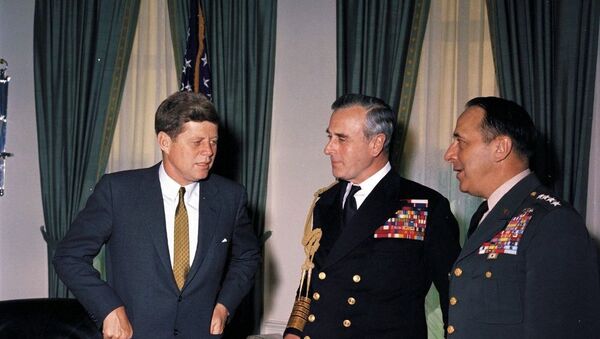Mountbatten perished alongside three others, including two children, on the Shadow V that Bloody Bank Holiday Monday, a day which also saw the killing of 18 soldiers in an ambush at Warrenpoint in Northern Ireland and an innocent passer-by.
The anniversary has been met with a new biography, a new television documentary and fresh allegations about Mountbatten’s private life.
Why is it important for us to remember Mountbatten today?
For a start he was undoubtedly an important historical figure. He was born right at the start of the 20th century where closely-related Royal families still dominated European politics.
Royal historian Kenneth Rose revealed that one of the first of the many uniforms Mountbatten wore in his long life was the cuirass and helmet of the Imperial Household Cavalry, given to him by Tsar Nicholas II, for Christmas 1905. Mountbatten loved his Russian cousins and it is said he kept a picture of Grand Duchess Marie, the Tsar’s third daughter, in his bedroom right up to his death.
He joined the Royal Navy when we was just thirteen and saw action in World War One. In World War Two he commanded HMS Kelly; the story of that ship‘s adventures inspired the famous film ‘In Which We Serve‘ in which the lead role- based on Mountbatten- was played by Noel Coward. He ended the war as Supreme Allied Commander, South-East Asia.
Mountbatten had no false modesty and enjoyed being called ’Supremo’. He was also quite obsessed about royal family lineage, titles and medals.
Yet he was a man of many contradictions. His politics were not, as you might expect, hard-core conservative and right-wing. On the contrary, Rose says it was Lord and Lady Mountbatten’s ‘flaunting of socialist beliefs’, along with ’the panache of their entertainment’ (yacht parties and hob-nobbing with the celebrities of the day, like Charlie Chaplin), which caused him to be twice ‘blackballed‘ for membership of the Royal Yacht Squadron. There was a story about Mountbatten (whether it’s true or not I don’t know) that once a Tory canvasser came along to the Mountbatten stately home. The canvasser asked if he could count on his Lordship’s support. Mountbatten quipped that he voted Labour, but his butler was a Tory. Why not speak to him?
The Labour government elected in a landslide in 1945 appointed Lord Louis as Viceroy of India in 1947, with the job of beating a retreat from Empire. The withdrawal was rushed and much bloodshed ensued. Mountbatten’s wife, Lady Edwina, famously had an affair with Pandit Nehru, India’s first Prime Minister.

Afterwards, Mountbatten continued to hold top positions in the Armed services. In 1968, it is claimed he came close to joining a plot against the then Labour Prime Minister Harold Wilson, hatched by newspaper baron Cecil King, to replace the government with a coalition government.
Being asked to ‘save the nation’ would no doubt have appealed to Mountbatten’s ego, despite his Labour sympathies.
A friend of mine, who served under him in the 1960s, says Mountbatten was an accomplished man but ‘a bit of a glory hunter’. He may have been quite conceited, but he did have a dry sense of humour. When asked what he was going to do in retirement he replied ‘I’m going to try not to die’. He achieved that successfully for fourteen years, until that fateful Bank Holiday Monday. Just three weeks before he was killed he said in an interview: ‘Dying doesn’t worry me: I’m looking forward to my own funeral. It should be good fun!‘
Ironically the anniversary of his death comes at a time when the British Royal Family faces another big test- the renewed scrutiny relating to the Duke of York’s connection with Jeffrey Epstein, the disgraced paedophile, who according to the coroner’s report, committed suicide in jail while awaiting trial earlier this month.
Mountbatten, the man who acted as a mentor to the Prince of Wales, hasn’t escaped fresh scandal either. It’s been revealed in the new biography that he was under surveillance by the FBI for more than thirty years on account of his sexual behaviour . It was alleged that Mountbatten had a penchant for young men and was driven to gay brothels. One aristocratic source in the FBI files claimed Mountbatten had a ‘perversion for young boys’.
None of this of course, was in the news following Mountbatten’s dramatic killing which shocked and saddened the nation, and it‘s important to stress that Mountbatten is not here to answer some of the more serious allegations made against him.
On the day after his state funeral on 5th September 1979 Paul Johnson wrote the main comment piece in the Daily Mail. It was entitled ‘Why must the heroes of today stay unsung’. Johnson wrote: ’When Lord Mountbatten was interred yesterday, did we bury with him, more than his mortal remain- did we bury the notion of the national hero? Let us pray that Mountbatten will not be the last of the real heroes’.
Was Mountbatten a hero? Some will say yes, undoubtedly, remembering his wartime activities, others, no. Some will see him as a hero, but a flawed one.
Tangentially, there’s another reason why we need to remember Mountbatten and the tragic events of 27th August 1979.
The ’Troubles’ in Ireland, which claimed the lives of so many innocent people across the sectarian divide, were brought to an end with the Good Friday Agreement of 1998. The ‘soft’ border between Northern Ireland and the Irish Republic is seen as a key part of the peace process. Could that be threatened by Brexit and a failure to find a solution to the problem of what would be the UK’s only land border with the EU? Or are the dangers of renewed conflict being over-hyped? Forty years on, Lord Mountbatten is still provoking debate.
Follow Neil Clark @NeilClark66 and @MightyMagyar
Support his AntiStalker Crowdfund
The views and opinions expressed in this article are solely those of the author and do not necessarily reflect those of Sputnik.




